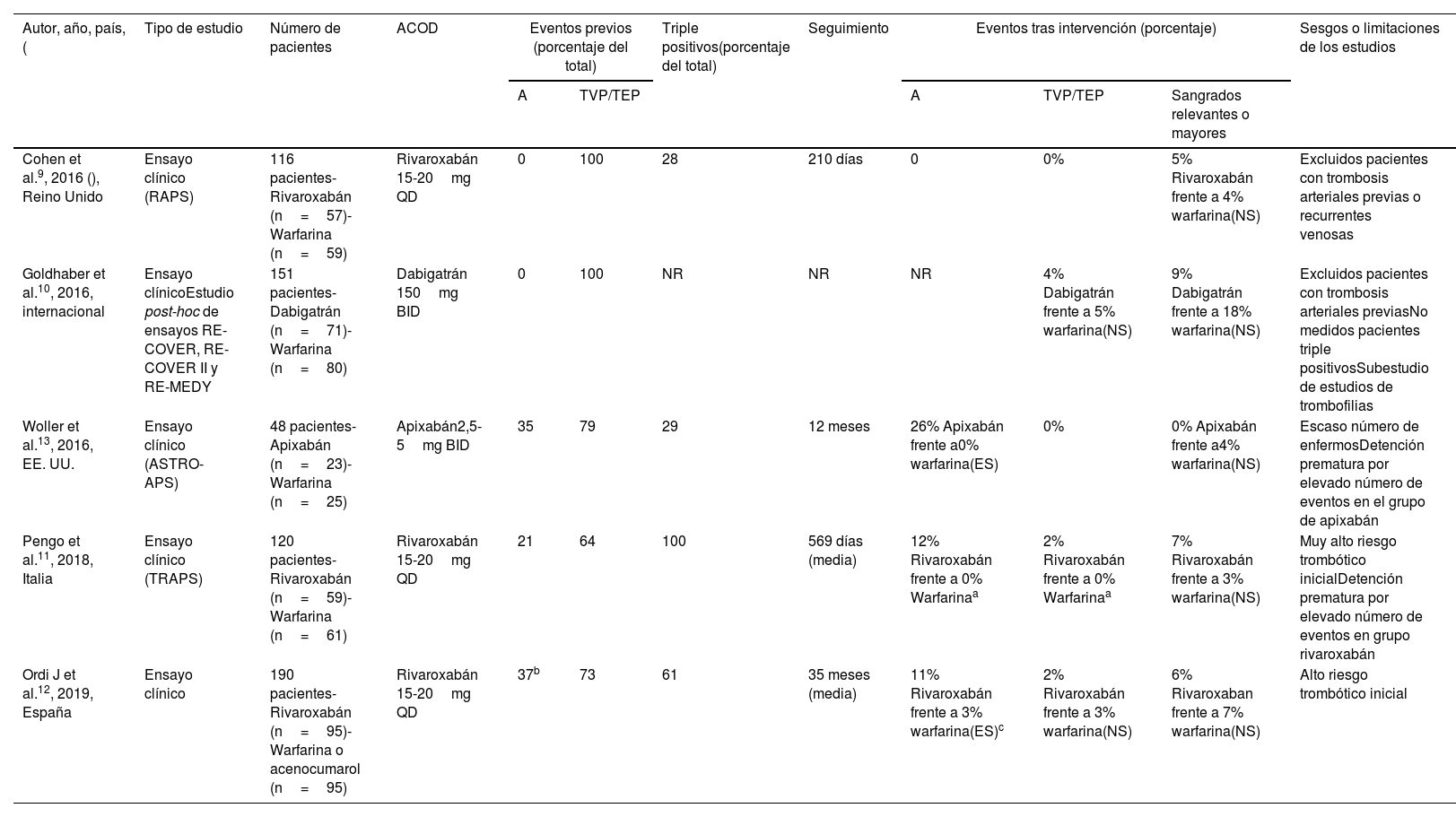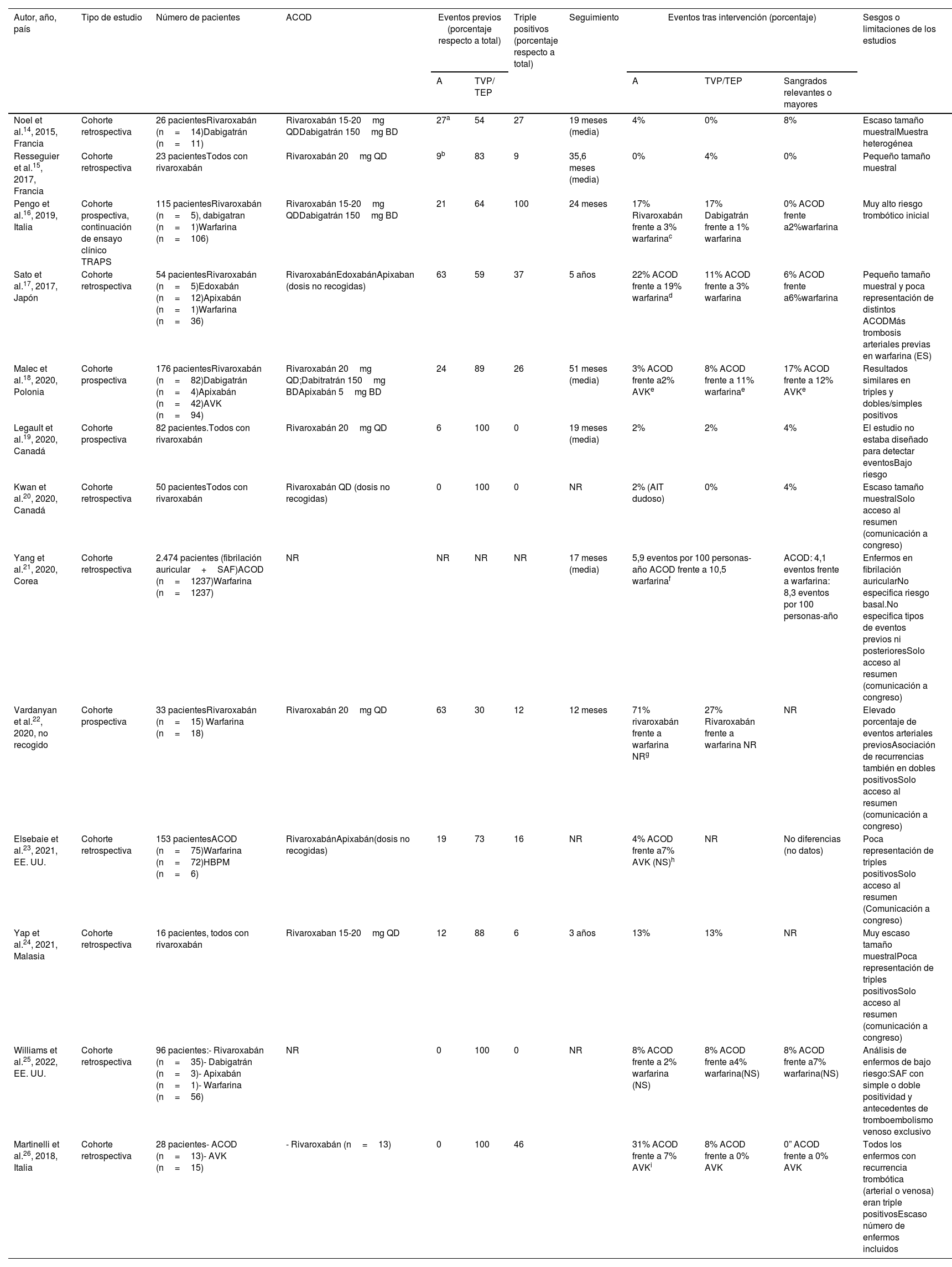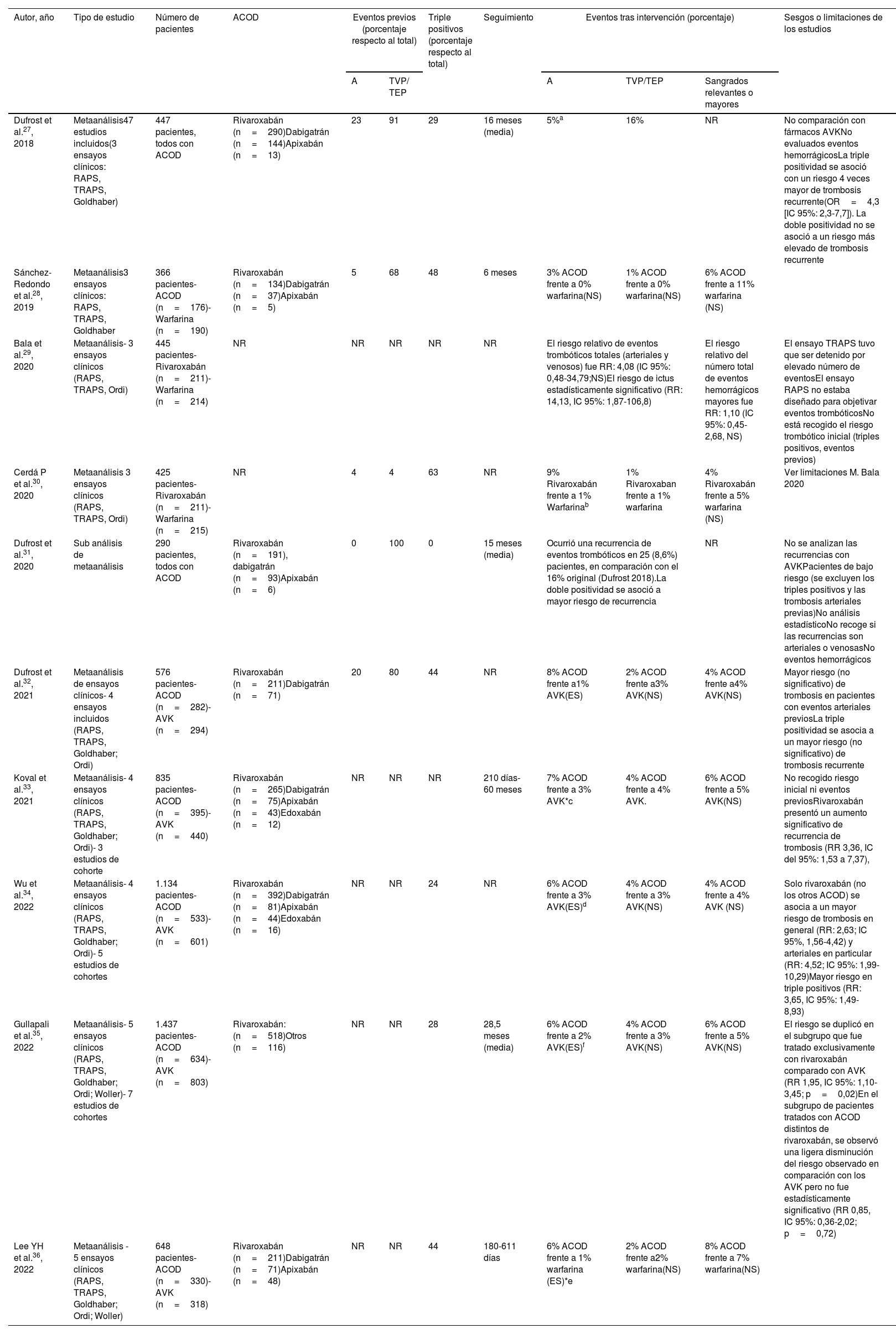El objetivo de la revisión sistemática es analizar la eficacia de los anticoagulantes orales de acción directa (ACOD) en la profilaxis de la trombosis en el síndrome antifosfolípido (SAF). Se realizó una búsqueda de los ensayos clínicos, estudios de cohortes y metaanálisis publicados desde el 1 de enero de 2012 hasta el 30 de septiembre de 2022. Se seleccionaron los trabajos que analizaban la eficacia de los ACOD en la prevención de la recurrencia de la trombosis, con o sin comparación con fármacos antivitamina K (AVK). Los ACOD, en concreto rivaroxabán y apixabán, fueron significativamente menos eficaces que los AVK en la prevención de la recurrencia de trombosis en enfermos con SAF y trombosis arterial previa o presencia concomitante de 2 o 3 anticuerpos antifosfolípido distintos. La proporción de enfermos con hemorragia grave como efecto secundario es similar en los tratados con ACOD y con AVK. Los resultados arguyen contra el empleo de los ACOD en el tratamiento de enfermos con SAF trombótico.
The objective of the systematic review is to analyze the efficacy of direct-acting oral anticoagulants (DOAC) in the prophylaxis of thrombosis in antiphospholipid syndrome (APS). We searched for clinical trials, cohort studies and meta-analyses published from January 1, 2012 to September 30, 2022. Articles that analyzed the efficacy of DOAC in the prevention of thrombosis recurrence, with or without comparison with antivitamin K (VKA) drugs, were selected. DOACs, specifically rivaroxaban and apixaban, were significantly less effective than VKAs in preventing recurrence of thrombosis in patients with APS and prior arterial thrombosis or the concomitant presence of two or three different antiphospholipid antibodies. The proportion of patients with severe bleeding as side effect are similar in those treated with DOAC and with VKA. The results argue against the use of DOAC in the treatment of patients with thrombotic APS.










